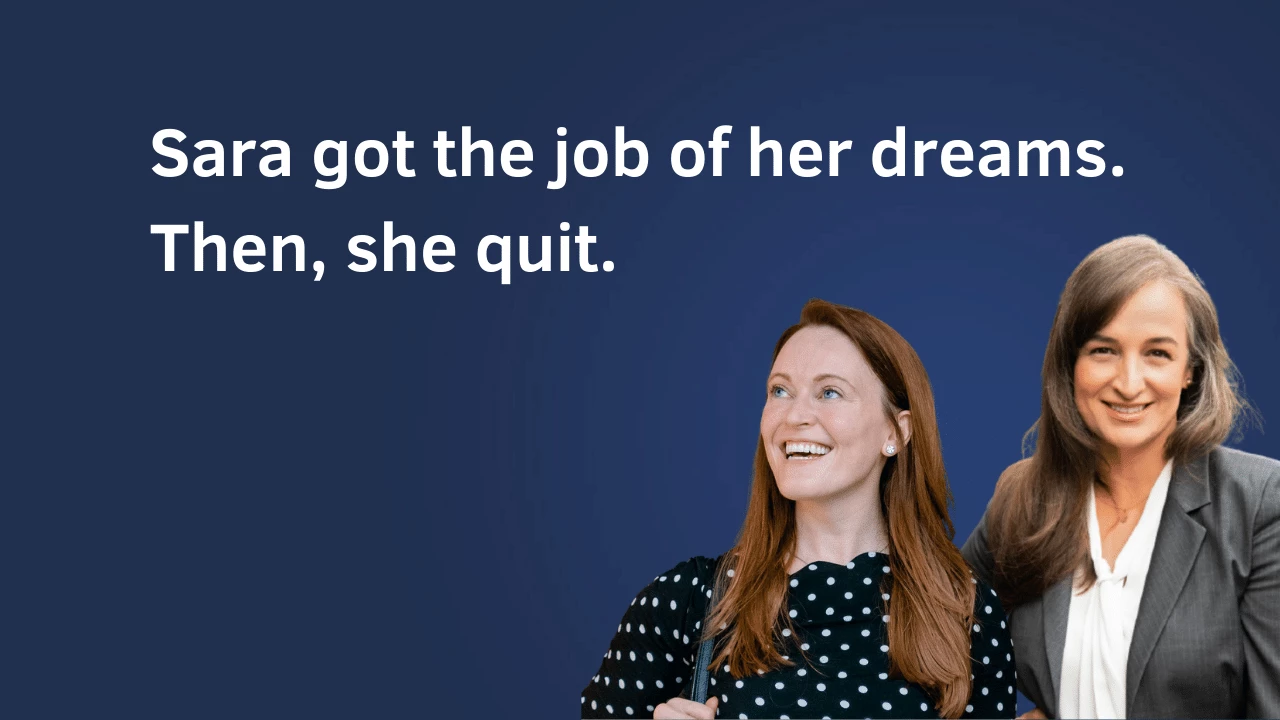Episode 162 - What Happens After We Quit Our Jobs: An Interview with Sara McElroy, Wall-Street Journal’s Poster Girl for the Great Resignation

Sara McElroy was burned out, overworked, sick, and running on empty. She joined the Great Resignation not once but twice. Now, Sara is writing the stories of dozens of professional women who quit their jobs during the pandemic. This podcast episode will be a great listen if you are:
Feeling burned out and stressed, even if you love your job.
Looking for work opportunities that allow you the flexibility you have been craving, such as working from home, working remotely, or having a better schedule.
Interested to know what it would look like to work for yourself.
Curious to know what happened to professionals who quit their jobs.
About our guest, Sara McElroy
Sara McElroy is a two-time member of the Great Resignation: class of 2021 and 2022. A former Chief Marketing Officer, she now finds herself in the company of millions of other professionals who also set unfulfilling jobs ablaze during the Great Resignation. So, she returned to her journalism roots and began to explore the stories, breaking points, and defining moments that led women to seek greater opportunities mid-pandemic. These conversations became the genesis of Raze to Rise – an organization created to amplify women's voices from the Great Resignation and inspire others to blaze new trails in their own careers.
Resources mentioned in this episode
Daniel Kahneman is the author of the best-selling book, Thinking, Fast and Slow. In this video, he explains the concept of Intuition and Expertise, which Sara and I discussed during our chat.
Timestamps to guide your listening
Transcript of this episode
About the Host
Hello, I’m Renata Bernarde, the Host of The Job Hunting Podcast. I’m also an executive coach, job hunting expert, and career strategist. I teach professionals (corporate, non-profit, and public) the steps and frameworks to help them find great jobs, change, and advance their careers with confidence and less stress.
If you are an ambitious professional who is keen to develop a robust career plan, if you are looking to find your next job or promotion, or if you want to keep a finger on the pulse of the job market so that when you are ready, and an opportunity arises, you can hit the ground running, then this podcast is for you.
In addition to The Job Hunting Podcast, on my website, I have developed a range of courses and services for professionals in career or job transition. And, of course, I also coach private clients.
Contact Renata Bernarde
I’m determined to help you! I want you to feel empowered, nail your next job, and have the career you want.
My free resources for job hunters: The Optimized Job Search: Weekly Schedule & Masterclass.
Learn more about my services, courses, and group coaching: RenataBernarde.com
